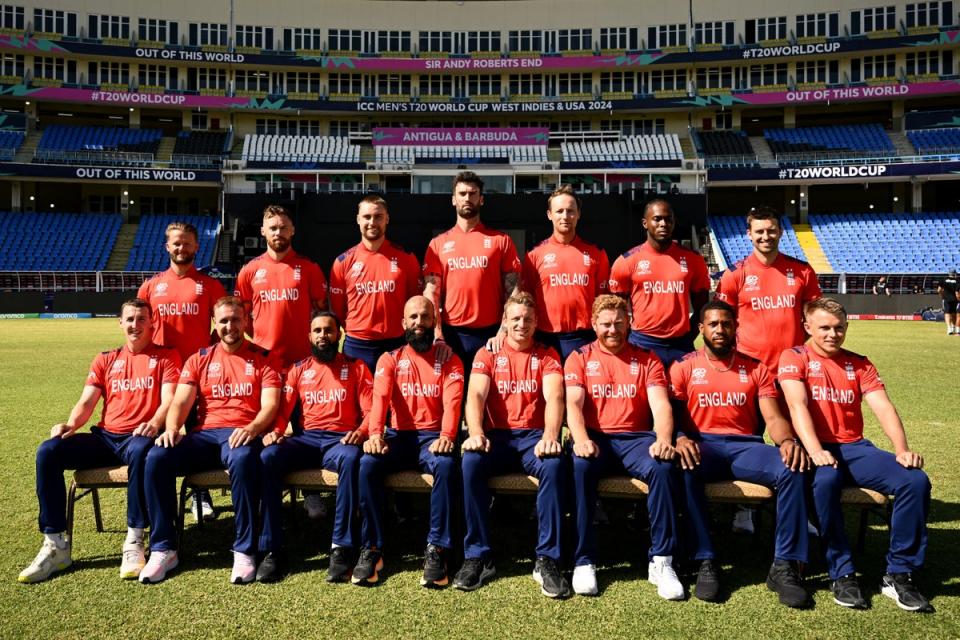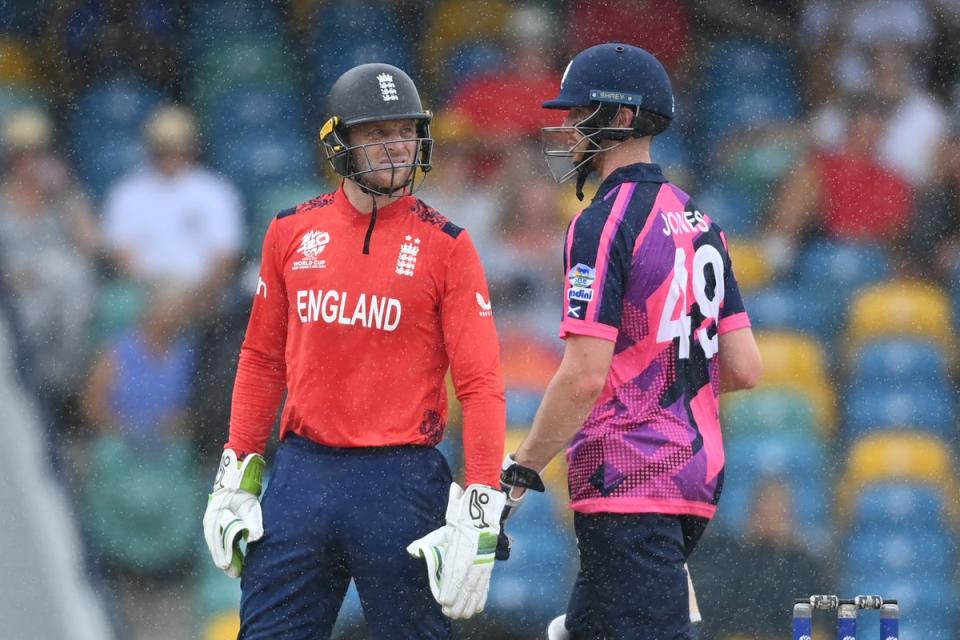T20 World Cup 2024: What England need to qualify for the Super Eights

England‘s thumping victory over Oman has restored their hopes of progressing to the Super 8 stage of the T20 World Cup despite their heavy defeat at the hands of old rivals Australia.
Mitchell Marsh’s side clinched a 36-run victory in Barbados, leaving England without a win after an washout against Scotland and making their encounter with the Middle Eastern nation must-win.
But Oman were skittled for just 47 as England produced a rampant bowling performance, while their batters needed just 19 balls to chase down the small target.
Australia have already qualified for the Super 8s, with three wins from three, with England now hoping to pip Scotland to progress in second spot from Group B.
Jos Buttler and his team take on Namibia in their final group game in Antigua, while Scotland (who have beaten both Namibia and Oman) face Australia in St Lucia.
Here are the permutations ahead of the final fixtures in the group.
England enter their final game two points behind Scotland and must beat Namibia to have a hope of progressing.
Scotland, meanwhile, know that a place in the Super 8s will be theirs if they beat Australia, or the game is a no result.
But England’s hopes have been significantly boosted by the magnitude of their victory over Oman. The thrashing has lifted England’s net run rate (+3.081) above that of their British rivals (+2.164) — assuming they beat Namibia and Scotland lose to Australia, they will reach the next round.

Can Australia and Scotland collude to stop them?
Not without receiving a ban. Australian fast bowler Josh Hazlewood suggested earlier this week that his team and Scotland might combine for a mutual interest — knocking England out of the tournament — but England’s net run rate swing means that the Scots can no longer lose and still go through if Buttler’s men take care of business against Namibia.
Were Australia to deliberately lose, Australia’s captain Marsh would be likely face a ban under the International Cricket Council’s Code of Conduct.
Yet Australia are expected to rest a number of players for the clash, and Scotland are a capable, confident side who will have confidence they can secure a win that would end England’s title defence.
Does it matter if you finish first or second in the group?
No. Neither your points tally nor your net run rate are carried through to the Super 8 stage, while all teams are already aware of which of the two Super 8 groups they will go into should they progress. The ICC slotted the eight seeded teams in the tournament into the groups to aid with ticket sales, providing certainty over where they would be playing.
Australia were pre-allocated slot B2 and will face India, Afghanistan and one other qualifier (likely to be Bangladesh), while England or Scotland will join the West Indies, South Africa and whoever progresses alongside India from Group A.
How is net run rate calculated?
Run rate is the average number of runs scored by a team per over in their innings, and the net run rate is subtracting the opposition’s run rate from the other teams, with the winning side finishing on a positive, and the losing side on a negative.
It works the same way in the tournament, with the average over score subtracted by the average runs in overs scored against the team.
If a side is bowled out within the 20 overs, then the runs are still divided by the number of overs a side could have batted.

 Yahoo Sport
Yahoo Sport 



































































